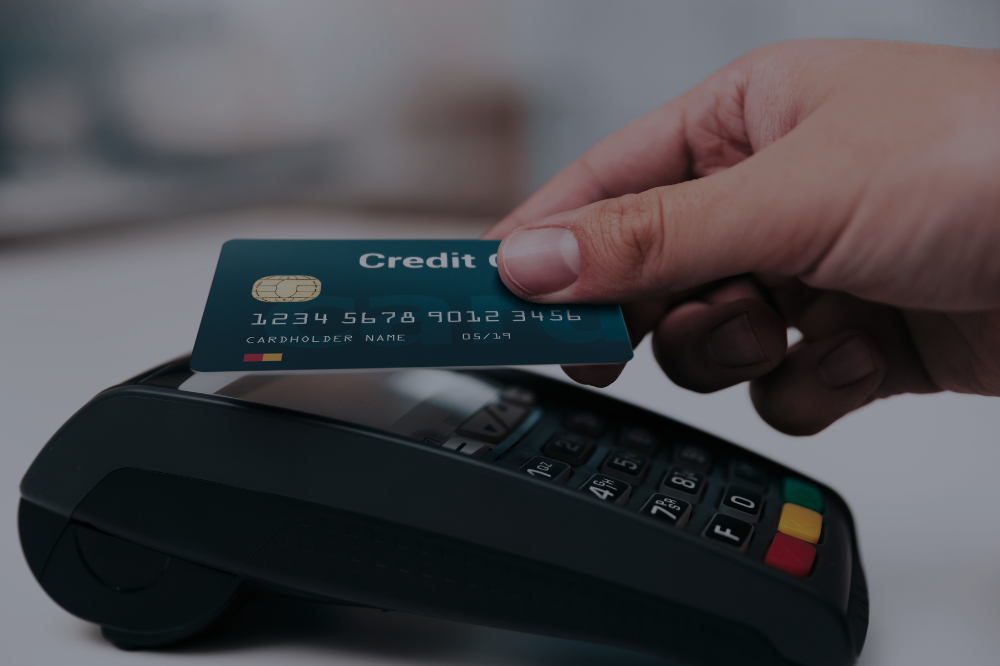Have you ever asked yourself: “Should I Use My Credit Card For Everything?”. Well, find the answer right now!
If you are the type of person that tend to use your credit card for everyting, you might have asked yourself at some point: “Should I Use My Credit Card For Everything?“. Well, that’s what you’re about to find out!
Find out what kind of expenses you should and should not put on it, while also learning what the advantages and disadvantages are, so you can know what it’s your best option. Also, if you want to check out more financial tips on our website, you can click on this link!
Should I Use My Credit Card For Everything?
Expenses You Should Put on Your Credit Card
-
Everyday Purchases: this includes groceries, gas, and dining out. Many credit cards offer rewards programs that give you cash back or points for every dollar spent in these categories. By using your card for these everyday purchases and paying your balance in full, you can essentially get a discount on your regular spending;
-
Streaming Services, Subscriptions, and Recurring Bills (with caution): while automatic payments from your checking account ensure on-time payments for utilities or gym memberships, there can be a case for using your credit card for some subscriptions. Consider this option only if the card offers rewards specifically for those categories (e.g., points for streaming services). However, be very careful and set up reminders to ensure you don’t forget about these monthly charges;
-
Large Purchases: putting a significant purchase like a new appliance or computer on your credit card can extend the manufacturer’s warranty and offer purchase protection in case of damage or theft. This can provide peace of mind in case something goes wrong with your expensive item. It also allows you to purchase itens you wouldn’t be able to pay all at once. Just be sure you can comfortably afford the monthly payments and factor in any interest charges if you can’t pay it off right away;
-
Travel: travel cards are a great way to maximize your travel experiences. Look for cards that offer airport lounge access, travel insurance, and bonus points on travel purchases like flights and hotels. These perks can significantly enhance your trip and potentially save you money on travel costs;
- Online Transactions: Credit cards offer additional security for online transactions compared to debit cards.
Expenses That Should Stay Off Your Plastic
-
Cash Advances: they come with a much higher APR than regular purchases and often have a cash advance fee on top of that. This makes them a very expensive way to access cash. Avoid using your credit card for them unless it’s an absolute emergency;
-
Gambling: it’s easy to get carried away when gambling with credit. Stick to a set budget and use cash to avoid racking up debt in the heat of the moment;
-
Rent or Mortgage Payments: while some services allow rent payments with credit cards, the convenience fees can easily outweigh any potential rewards. It’s generally cheaper and more straightforward to pay rent or mortgage with a check, debit card, or electronic bank transfer;
-
Unplanned Expenses: if you’re not sure you can afford an unexpected expense, using a credit card can quickly lead to debt. It’s better to have a well-funded emergency fund to cover these situations and avoid putting unforeseen costs on it;
-
Medical Bills: can be unpredictable and often quite high. Using a credit card for these expenses can add interest charges on top of an already significant financial burden. Work out a payment plan with your healthcare provider or explore other options with lower interest rates.
CHECK OUT SOME GREAT CREDIT CARDS
Pros vs. Cons
Pros
-
Rewards and Cashback: many cards offer rewards programs that give you points, miles, or cashback for your spending. These rewards can add up quickly, translating into free travel, gift cards, or statement credits;
-
Building Credit: responsible credit card use is one of the easiest ways to build a good credit history. By consistently making your payments on time, you demonstrate your ability to handle credit responsibly, which can improve your credit score. This, in turn, can lead to better loan rates and terms in the future;
-
Enhanced Fraud Protection: they typically offer stronger fraud protection than debit cards. If your card is lost or stolen, you’re usually not liable for fraudulent charges. With debit cards, the money may be withdrawn directly from your checking account before you even realize there’s a problem;
-
Convenience and Security: carrying a credit card is often more convenient and secure than carrying cash. You can easily track your spending online and receive notifications for suspicious activity;
-
Extended Warranties: some cards automatically extend the manufacturer’s warranty on certain purchases, potentially saving you money on repairs.
Cons
-
High-Interest Purchases: they typically come with high annual percentage rates (APRs). If you can’t pay your balance in full each month, the interest charges can quickly eat away at your rewards and create huge debts;
-
Temptation to Overspend: the ease of swiping can lead to impulse purchases that you might not be able to afford. It’s important to have a budget and stick to it, regardless of your payment method.

